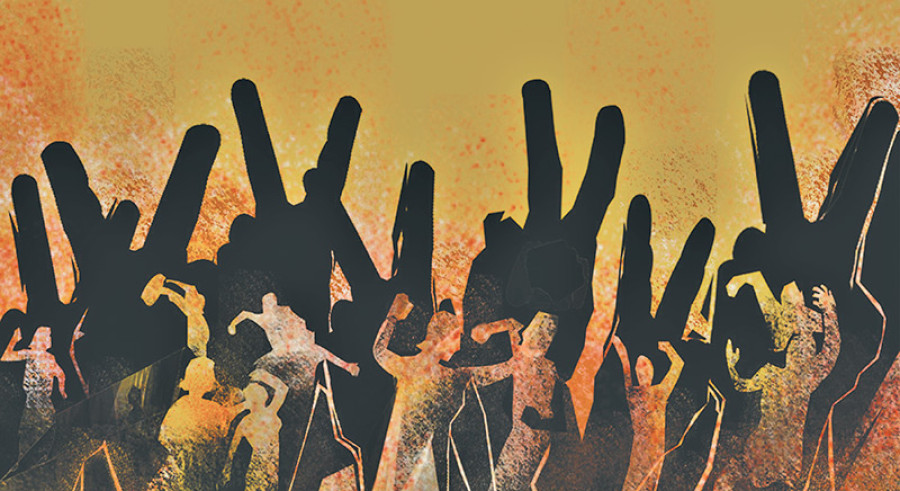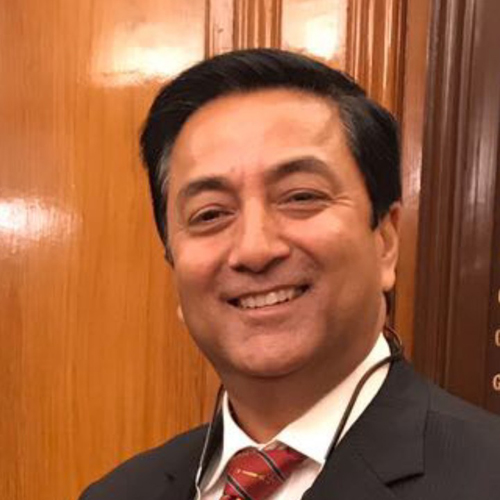Opinion
No violence please
Election violence usually occurs in countries that are transitioning to democracy. Following the successful completion of the local elections which were held after a gap of two decades and the first phase of parliamentary and provincial elections on November 26, Nepalis will vote in the second phase on December 7.
Binoj Basnyat
Election violence usually occurs in countries that are transitioning to democracy. Following the successful completion of the local elections which were held after a gap of two decades and the first phase of parliamentary and provincial elections on November 26, Nepalis will vote in the second phase on December 7. Bearing in mind political developments and security challenges, peaceful elections cannot be assured. Nepal is also like other countries that have come through difficult times with extreme challenges. These elections are the first nationwide contest involving two thoughts, communism and democracy; and two approaches to democracy, development and prosperity.
Conditions for conflict
Nepal, a least developed country emerging from a decade-long conflict, transformed into a secular state and a republic with a federal system. Finance is an important factor in conducting fair and free elections. Candidates either fund their campaigns on their own or receive grants from different sources like the government, political parties, individuals and institutions. According to the Ministry of Finance, the government budget for the local body election was Rs23.13 billion, out of which security agencies and the Ministry of Defence spent Rs11.43 billion. There are 14.1 million voters in the country, which means the government spent Rs1,309 per voter. The Election Commission, however, said the expenditure per voter came to only Rs488.
Voter education about the do’s and don’ts before, during, and after, the elections plays a significant part in the success of fair and free elections. A failure to bring to justice those who hurl bombs and shoot candidates, and politicians who engage in electoral violence emboldens potential troublemakers. As per the International Labour Organisation Office Nepal, there has been a massive increase in labour migration, and close to 50 percent of Nepal’s population relies on financial help from relatives abroad, the highest rate in the region. A pool of unemployed youths provides unscrupulous politicians, who are anxious to seize or hold on to power by all methods, a readymade force who will do their bidding. The money gained from corruption and poverty is a nuisance. The electoral system will not be free from this annoyance as money frequently changes hands during the election campaign to persuade, tempt, silence or manipulate.
Ineffective leadership clearly leads to inadequate security. Law enforcement agencies were overwhelmed by the wave of political violence that was seen during past elections. Media reports have described how security personnel, especially the temporary staff, were on the ground when acts of violence were perpetrated. They could not respond due to difficulties imposed by inadequate number and equipment, and above all, by political influence and the politicalisation of forces.
The inability of the political, military and law enforcement leaders and the election commissioner to provide leadership and high standard of management in ensuring violence-free elections cannot be ruled out as each and every day, decision-makers are overloaded with information. Lack of effective coordination among forces and officials conducting and educating voters can be taken into account with the experiences of past elections.
An invitation for trouble
Numerous youths of the sister organisations of political parties believe that their responsibility is to cause disorder, stir up trouble, coerce voters and engage in clashes with political opponents. A decade of conflict has exposed the lack of a democratic culture which has in turn affected the psyche of the average person and some politicians. Even if things are seen to be improving, lack of democratic culture is apparent in all stages of the campaigning, from campaign rallies to political debates and speeches. Politicalisation of institutions and lack of integrity among officials conducting the elections invites violence.
Election violence occurs throughout the world and so preventive measures are essential. The electoral arbitrator and security forces have to ensure that the electoral process is believable, convincing and plausible in order to end the violence that is linked with elections. Political operatives often use electoral violence as a tool to meet political objectives, so it is important to monitor trends to prevent it.
Improving the integrity of elections and elections based on democratic principles and political equality are important. The guns and explosives used for disturbing the election environment will have a long-term bearing on national security. Unclear instructions to the forces and actors can also exacerbate apprehension and undermine the credibility of election outcomes. Biasness on the part of officials could escalate violence. Numerous measures can reduce the risk of violence: One, by educating voters; two, by creating a secure and favourable environment; three, by punishing perpetrators through the justice system; and four, by improving the integrity of the conductors with the security agencies assuming the greatest responsibility. The first phase of parliamentary and provincial elections have been successful, but a hurdle yet remains in the form of the second phase.
Basnyat is a retired Army Major General, he holds an MPhil degree and is a political and security analyst




 9.89°C Kathmandu
9.89°C Kathmandu










